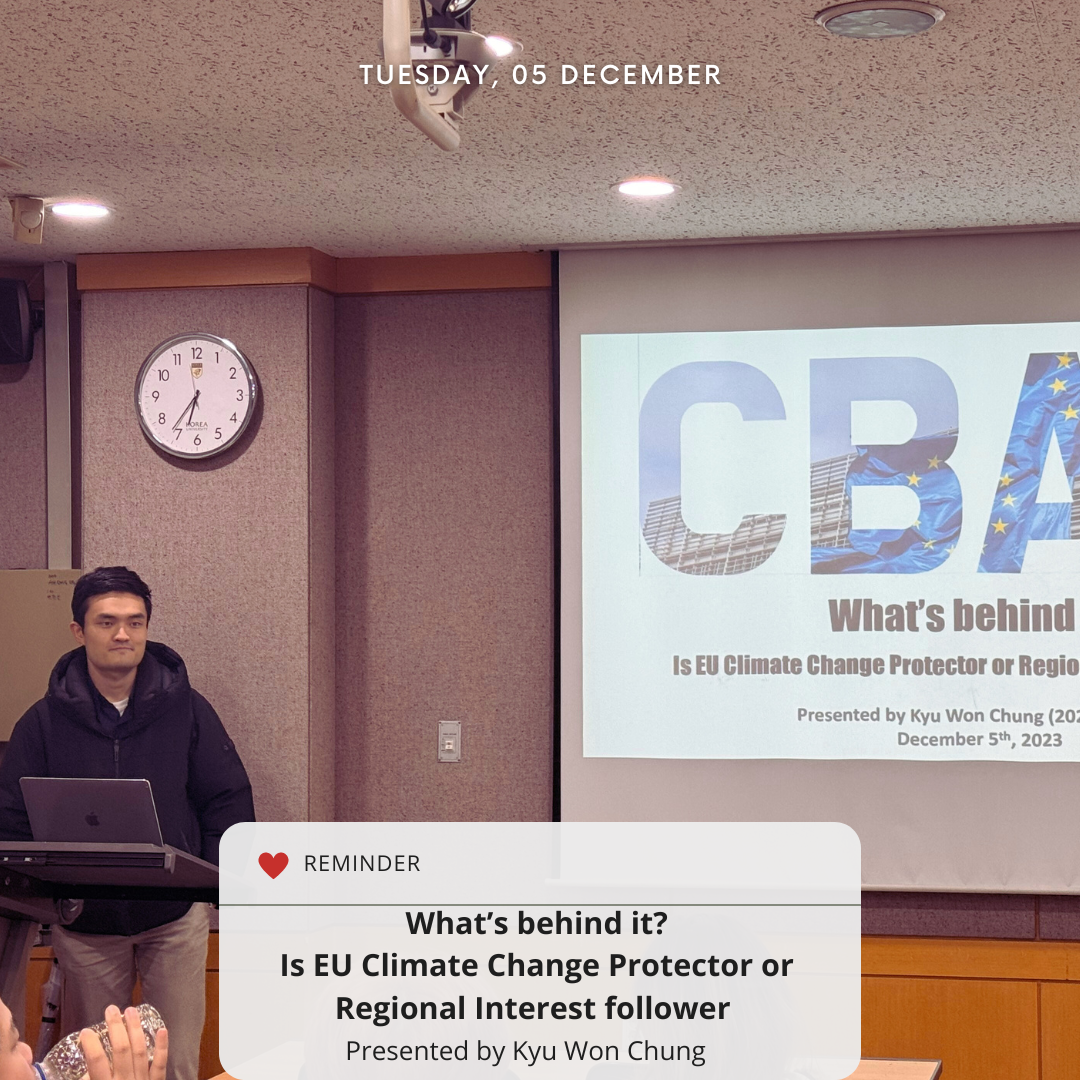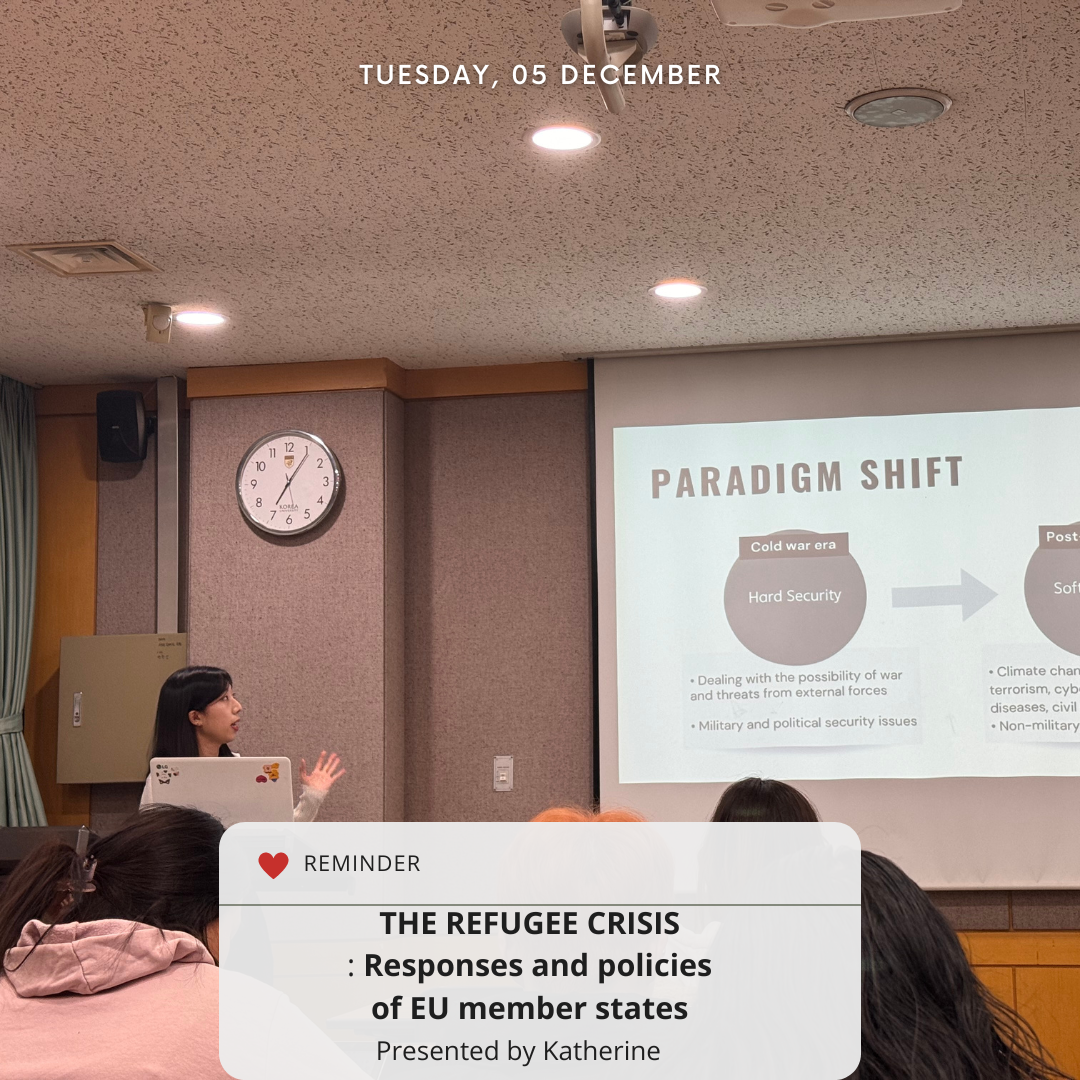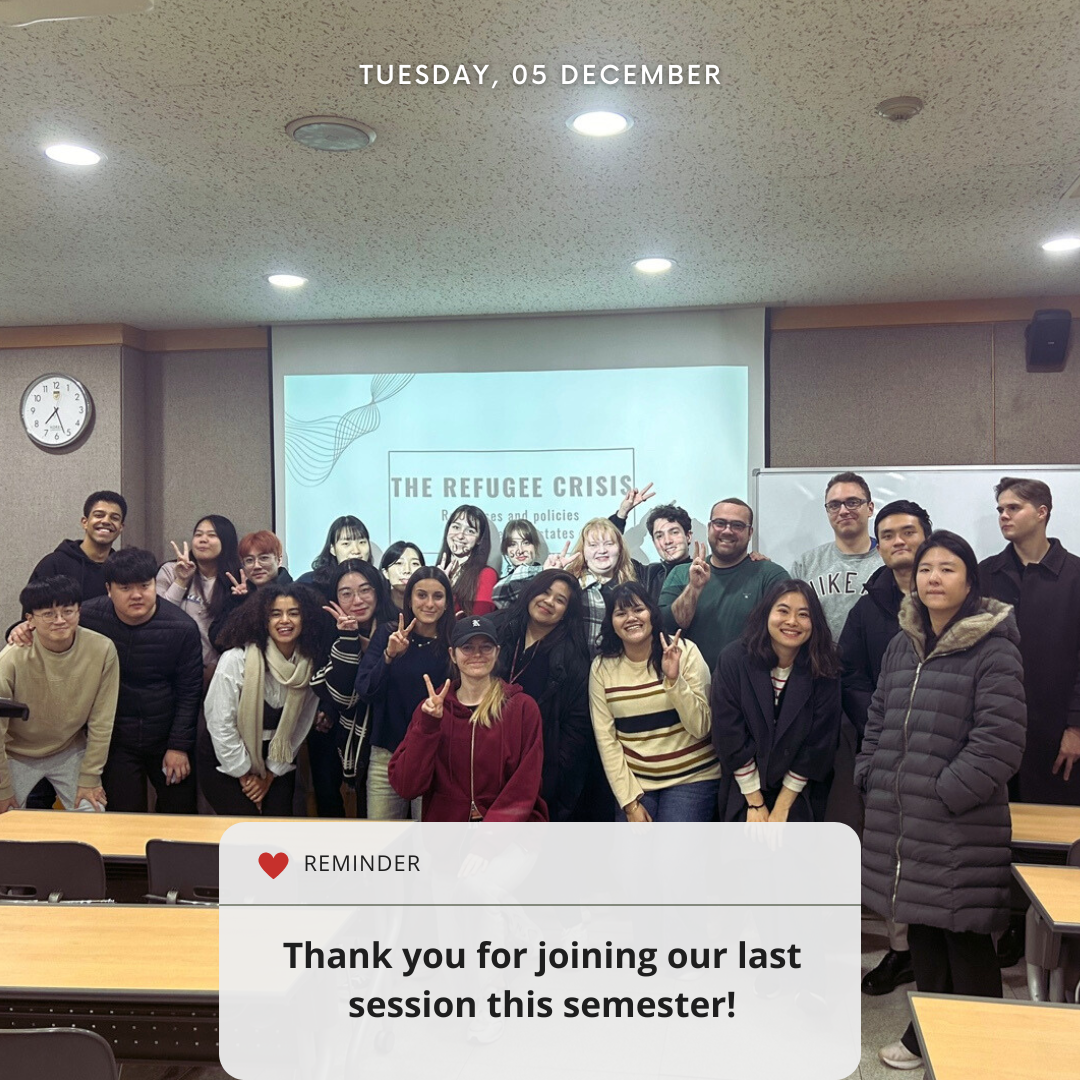2023-2 EU Society 9th Session (Dec 5, 2023)
페이지 정보

본문
The EU Society’s Ninth Session began with fast greetings and the announcement that this will be our last session this semester, as well as thanking everybody for showing up in such a big number.

First to present was Kyu Won Chung with his presentation on the “EU CBAM: What’s behind it?” As the tittle suggests, the presentation discussed the EU Carbon Border Adjustment Mechanism (CBAM), outlining its purpose, impact, criticisms, and conclusion. Kyu Won highlighted that CBAM aims to impose a fee on carbon-intensive goods imported into the EU, impacting countries like Russia the most. The transition period concludes in 2026, addressing concerns about carbon leakage as industries might relocate to countries with lax climate policies. Some of the criticisms mentioned included the limitation of scope to EU states, potential greenwashing, and its adverse effects on developing countries, such as Mozambique facing a 1.6% GDP decrease - which shocked a lot of the members present. Additionally, countries like the US, Canada, and Japan are pursuing similar measures in the war against climate change. This comprehensive overview delves into the CBAM’s implications, criticisms, and global context. The following discussion was started by the more of a statement, than a question: CBAM - Climate Change Protector or Regional Interest Follower. Most of the members agreed that EU climate actions are more financially driven, emphasizing regional policy protection over direct climate impact. The instance of Korea rapidly adjusting standards to align with Europe and the US highlights the interest-driven nature of these changes. It was debated that while pushing companies towards eco-friendliness might bring short-term challenges, it holds the promise of long-term benefits, as discussed regarding the cable industry. The possibility of postponing the CBAM was also raised, indicating potential shifts in policy implementation due to various considerations and interests. This debate highlights the intricate balance between environmental goals and regional interests within EU climate actions.

Second presentation by Kim Yehyun “The Refugee Crisis: Responses and policies of EU member states” highlighted the evolution of security paradigms, shifting from Cold War hard security to a focus on soft security, particularly regarding the securitization of refugee issues. The hypothesis that Yehyun set questioned whether nation-centric immigration policies genuinely ensured national security. Furthermore, Yehyun went through the historical timeline of the EU policies which are most important when talking about the refugee crisis. The refugee policy framework, originating from the Amsterdam Treaty in 1997, underscored the refugee crisis as the most significant threat to EU security. Another important event was the Dublin Treaty, which aimed at equitably distributing refugee acceptance responsibilities, but the impact on national security varied across member states. Speaking about the refugee crisis of 2015, Germany notably adopted a proactive approach, while southern countries initially served as gateways for refugee influx. Conversely, Hungary, Slovenia, and Slovakia exhibited more exclusive stances. Yehyun also emphasized that developing countries, primarily in the Middle East, Africa, and Asia, bore the brunt of the refugee burden, accommodating 86% of refugees. The turmoil experienced by neighboring countries paralleled the crises in refugees' home countries. The following discussion was an interesting one to follow. Members of the EU Society debated the rights of illegal immigrants, engaging in discourse about the ethical and legal considerations associated with their status. Debate revolved around ensuring humane treatment and assessing access to fundamental rights for immigrants. Another significant point made by one of the members was how could the countries better aid migrants in assimilating into society - with the emphasis on the importance of education, language training and employment opportunities. Many students have also critiqued the EU's border policies, highlighting the deficiencies in managing the refugee crisis. Additionally, there was recognition of how the rise of right-wing movements exploited the immigrant crisis as a means to rally voter support, further complicating the overall response to the refugee situation.

After the two presentations followed by interesting debates all of the members were invited to have dinner together where we rejoiced on the fun memories we made during this semester’s EU Society meetings!
댓글목록
등록된 댓글이 없습니다.










